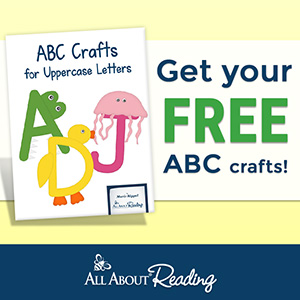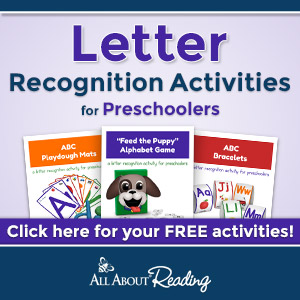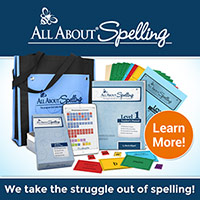As I have posted before,
Mystery of History 4 works well with
Sonlight and for high school. We're using it this year for my senior and sophomore, and have not been disappointed. This may turn out to be our favorite volume yet! Even my non-history loving child has been excited to tell me about several of the lessons (the early one on Bach and Handel helped my music-lover!)
This year is our most "eclectic" year yet. I had planned to pull books mainly from
Sonlight 300 and then other cores for the earlier time period, but I also really wanted my oldest to get some British literature in, and a more focused "literature course" before going to college. (I tend to have us read and enjoy literature, discuss what interests us, and only occasionally do "literature analysis.") So with that in mind, I had to be pretty ruthless in deciding which
Sonlight 300 books we could read aloud. I decided in the end to do
Learning Language Arts Through Literature Gold (British Lit), some 300 books, a few from 530, and even a book from Core H and Core F, to round out our lit for this year.
We read aloud for about 30-45 minutes per day typically. Here's what I came up with (the number preceeding the book shows the approximate week I hope to start this book, and the chapters after show how much I anticipate reading per day):
Summer Read-alouds:
The Best of Sherlock Holmes (2 days per story, 4 weeks)
The Wednesday Wars (9 sections, 30 pgs each, 2 weeks)
School Year Read-alouds:
1-
In Search of Honor. (Core H. 1787 – French Revolution: 3 ch)
3-
Jane Eyre – (Core 200. 1 ch)
9-
The Importance of Being Earnest – (Core 530. 1890’s: ½ Act/day 1-2, 1 Act 3)
10-
The Great Brain – (1900’s beginning: 1 ch)
12-
Murder on the Orient Express (2 ch)
15-
Old Man and the Sea – (1940’s: 25 pages)
16-
The Hiding Place (1940’s: 1 ch)
19-
The Great Divorce (Core 530. 1-2 ch)
21-
Alas, Babylon – (1950’s written: 1 ch)
23-
Breaking Stalin’s Nose – (Core F. 1950’s-ruled 20’s – 50’s: 6 ch)
24-
My Father’s Daughter – (1952: 1 ch)
27-
Red Scarf Girl – (1966: 1 ch)
30-
To Destroy You Is No Loss – (1975: 1 ch)
33-
There’s a sheep in my Bathtub – (1990’s: 2 ch)
Movies:
The Scarlet Pimpernel (French Revolution)
As You Like It – Shakespeare (filmed at the Globe)
All Quiet on the Western Front (WW I)
Cry, the Beloved Country (1940’s just after WWII)
Ghandi (1950s)
Optional:
Gulliver’s Travels (1726: 39 chapters, 2 chapters per day, 3 weeks)
Seeking Allah, Finding Jesus (53 chapters, 2 per day = 4-5 weeks)
Fallacy Detective: 38 Lessons, 1 per week?
Readers:
LLATL Gold
1 – Emphasis on Poetry
6 – Romantic Poets – Wordsworth, Coleridge
9 –
Frankenstein
13 – More Romantic Poets – Shelley, Keats
15 –
Emma for dd,
Gulliver's Travels for ds
21 – Victorian Poets – Tennyson, Browning, Arnold
24 –
A Tale of Two Cities
30 – More Victorian Poets – Hopkins, Hardy
31 –
The Time Machine
33 – Modern Poets – Eliot, Owen, Graves
34 –
Animal Farm
If I wasn't doing British Lit, I might have chosen differently for the readers, though I think the time frame lines up nicely to do British Lit with this level of
MOH.
We've already veered from this slightly--since
MOH 4 wasn't ready when we started our school year, I started with
Jane Eyre (thought-provoking look at character, faith, the internal battle when resisting sin.) Hopefully we'll hit
In Search of Honor close to when we study the French Revolution.
One more change--after pre-reading
Emma (used in
LLATL Gold), I decided my son would not be interested or amused by it! (He did sit through
Pride and Prejudice as a read-aloud a couple of years ago, and did well with that after the first 1/3.) So I'm going to substitute
Gulliver's Travels for him when that comes up.
That's one reason I really like coming up with a one-page list like this--it makes it easy for me to alter plans depending on what we're doing in the year, and to make the curriculum work for us, while at the same time giving me a solid plan to follow for the year.
I'm really excited about the variety of books this year, and the chance to discuss compelling works, as well as include some humor. I'm treasuring this last year of working with my son before he graduates, and enjoying both students as they become young adults. Sometimes homeschooling high school is intimidating--I can look too far ahead and lapse into worry and fear about the future. But the Lord pulls me back and reminds me they are in his hands, and to treasure and cherish today and the gift of homeschooling.













